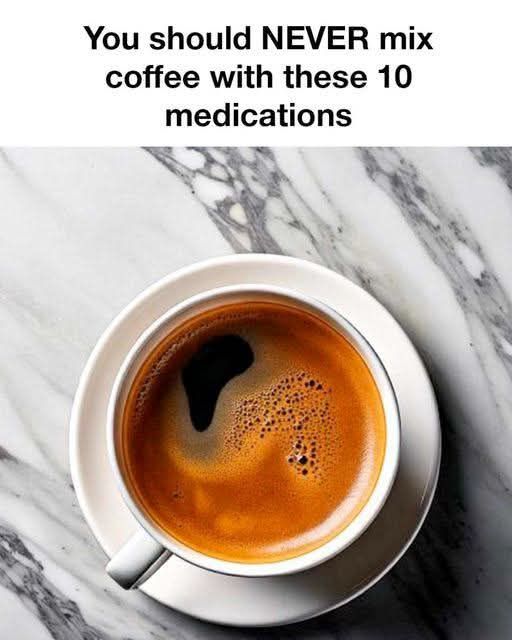ADVERTISEMENT
**The Hidden Impact of Coffee on Medications: What You Need to Know**
Coffee is more than just a beloved morning ritual. For millions around the world, a cup of coffee is an essential part of the day. Whether it’s the bold taste, the caffeine boost, or the comforting aroma, coffee offers a lot of benefits. However, for those who are taking medications, there may be a hidden side to coffee that could affect how these drugs work in the body. Understanding the interactions between coffee and medications is crucial to maintaining your health and ensuring the medications you take work as intended.
### **How Coffee Affects the Absorption of Medications**
Coffee, particularly its caffeine content, can have significant effects on how medications are absorbed and processed in the body. The caffeine in coffee can alter the rate at which certain drugs are absorbed by speeding up or slowing down their movement through the digestive system. For example, coffee can:
1. **Speed up gastric emptying:** Coffee can stimulate the stomach to empty faster, which may reduce the effectiveness of certain medications that need time to be absorbed in the stomach.
2. **Increase acid production:** Coffee can increase stomach acid production, which may affect the absorption of medications that rely on a more neutral pH for optimal absorption.
3. **Cause gastrointestinal distress:** Drinking coffee on an empty stomach or with certain medications can lead to irritation in the digestive tract, causing discomfort or reducing the efficacy of the medication.
### **How Coffee Interacts with Specific Medications**
Several types of medications are particularly sensitive to the presence of coffee. Here are some of the most common drug classes that can be impacted by your morning cup of joe:
#### 1. **Blood Pressure Medications**
Caffeine is known to have a stimulating effect on the heart and blood vessels, which can lead to a temporary increase in blood pressure. For individuals who are taking blood pressure medications, such as beta-blockers or ACE inhibitors, the caffeine in coffee can interfere with the drug’s ability to regulate blood pressure effectively. If you’re on blood pressure medications, it may be important to limit coffee consumption to avoid counteracting the benefits of your medication.
#### 2. **Antidepressants**
Certain antidepressants, particularly selective serotonin reuptake inhibitors (SSRIs), can interact with caffeine. The stimulant effects of caffeine can exacerbate side effects like jitteriness, nervousness, or restlessness, making it more challe
